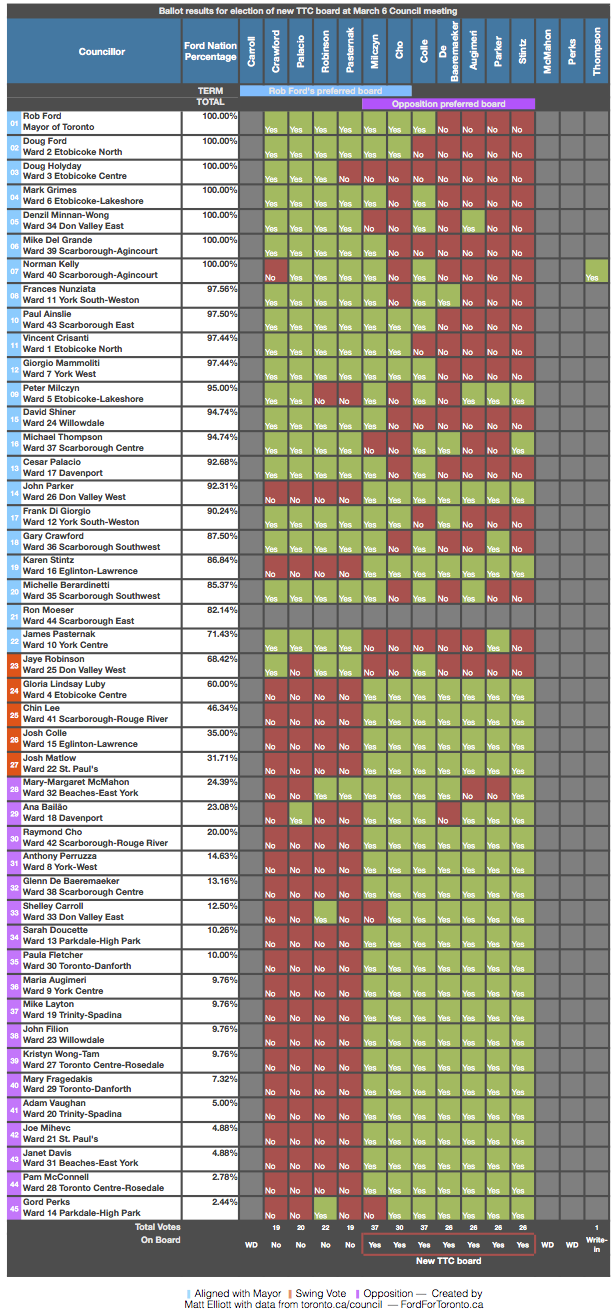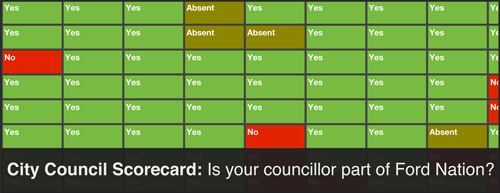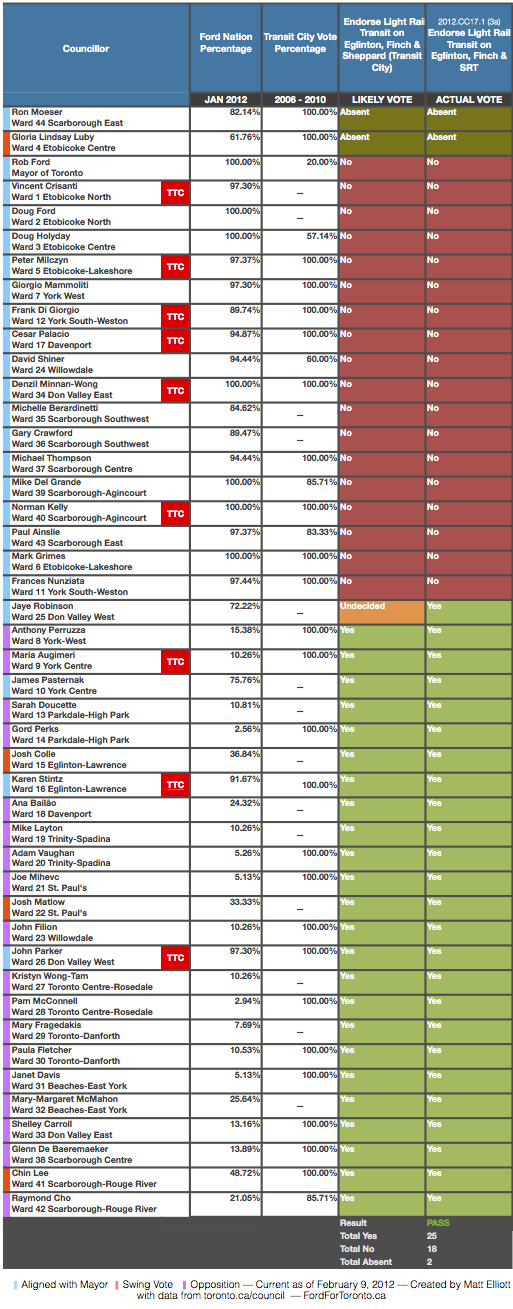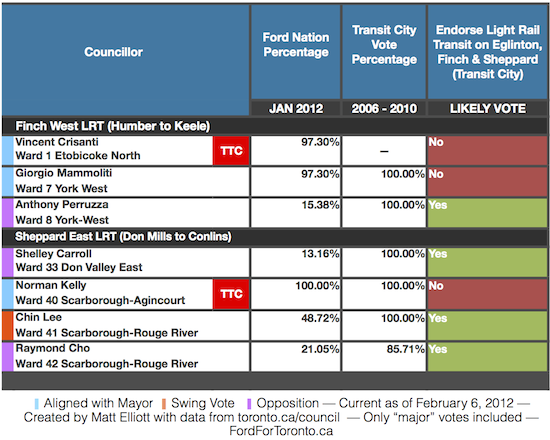The Globe & Mail’s Marcus Gee:
The mayor, never very engaged in the first place, shows signs of checking out. Always more comfortable campaigning from the outside than running the city from within, he is shifting into campaign mode.
Lined up against Mr. Ford, we have a power-drunk left-wing opposition so full of themselves that they are leaping to humiliate the mayor at every turn – an over-reaching that could come back to sting them at the next election in 2014.
via Messy political fighting plunges City Hall into chaos – The Globe and Mail.
Council’s newfound habit of overruling the mayor has got a lot of people thinking about the 2014 municipal race. Terms like ‘over-reaching’ and ‘power-drunk’ don’t make for a pretty picture.
Let’s take a look at how things might go from here.
The Pessimistic View:Â Rob Ford may be lousy at governing, but he’s amazing at campaigning. By over-reaching on the transit file and sneaking out wins in the chamber, council’s left has thrust the mayor into the role he was born to play: the underdog.
The mayor’s team is now well-positioned to spend the next two-and-a-half years stomping their feet and ranting about all the good they could do, if not for those meddling socialists. In the eyes of the public, council is a natural villain – they’re an amorphous blob of politics-as-usual, whereas Ford is the guy you want to have a beer with. He’s the guy who understands you.
So there’s the story: Ford gets to play the outsider who can’t get his way because of those council bullies and downtown elites that want to screw over the suburbs. Meanwhile, villainous council gets to wear responsibility for all the day-to-day decisions of government. Couple that with some heavy duty transit construction that should kick off around election season, tearing up roads and hurting business owners, and Toronto looks poised to give Ford-label populism another go. They may even take down several left-leaning councillors in the process.
Plus, he’s the incumbent. That’s the municipal politics equivalent of a massive head-start.
The Optimistic View: For a populist, Rob Ford is incredibly unpopular. His poll numbers are terrible. David Miller didn’t sink to an approval rating this low until there were literal piles of garbage strewn about the city.
Less than two years in, Ford’s got a huge knock against him: he’s shown the public that he’s not able to keep his promises and get things done. He’s shown that he’s an ineffective leader.
This is a big issue for Canadian voters. In last spring’s federal election, Stephen Harper was ushered into majority territory with campaign rhetoric built on words like “strong” and “stable.” Dalton McGuinty co-opted the same language in the fall, pulling out an unlikely victory.
Ford’s style of government is the opposite of strength and stability. His City Hall always feels like it’s on the brink of outright chaos and, worse, he’s developed a nasty habit of over-promising and under-delivering. Gravy? Not found. Subways? No plan. His guarantee of no service cuts? Worthless.
And the opposition is ready. Ford has inadvertently sparked a level of engagement with civic issues like this city has never seen before. People are going to be on the ground en masse in 2014. And council, assuming they can continue to find common cause on the important issues, will be poised to make a strong case to the electorate that someone from their ranks is the person that can provide the strong and stable leadership that Toronto needs.
Maybe that someone will come from a peanut-shaped ward in North York.
The Realist View: 2014 is really far away. Do you have any idea how many crazy, totally unpredictable things are going to happen between then and now? Think of all the out-of-nowhere scandals and surprise page-one issues that stuck to the mayor in 2011.
And remember: if you had asked political-watchers in 2007 to predict the 2010 race they probably would have put forward candidates like David Miller, Adam Giambrone, John Tory, Karen Stintz and Michael Bryant. No one would have guessed Rob Ford.
We’re still an eternity away from being able to make conclusive statements about the next municipal election.
There is, of course, a need for strategy. Council’s new majority needs to continue to move forward on an issue-by-issue basis, receiving the mayor’s agenda items with fair consideration. They need to keep in mind that they’re running, at best, a centrist government. This isn’t a time for wild progressive gambits.
Ford, on the other hand, just needs to focus. On every file except transit, he’s still got close to 23 votes in his favour. He can maintain and strengthen that support if he and his allies stop with the petty personal attacks and outright threats. Telling a right-leaning Etobicoke councillor that you will execute her is not a good plan. Ford is far more electable if he can prove himself to be effective, even if that means toning down some of his ambition and finding compromise.
But, right, we’re being realists here, so let’s make it clear: the mayor probably won’t do that. He’s Rob Ford. He doesn’t compromise. He can’t change.





